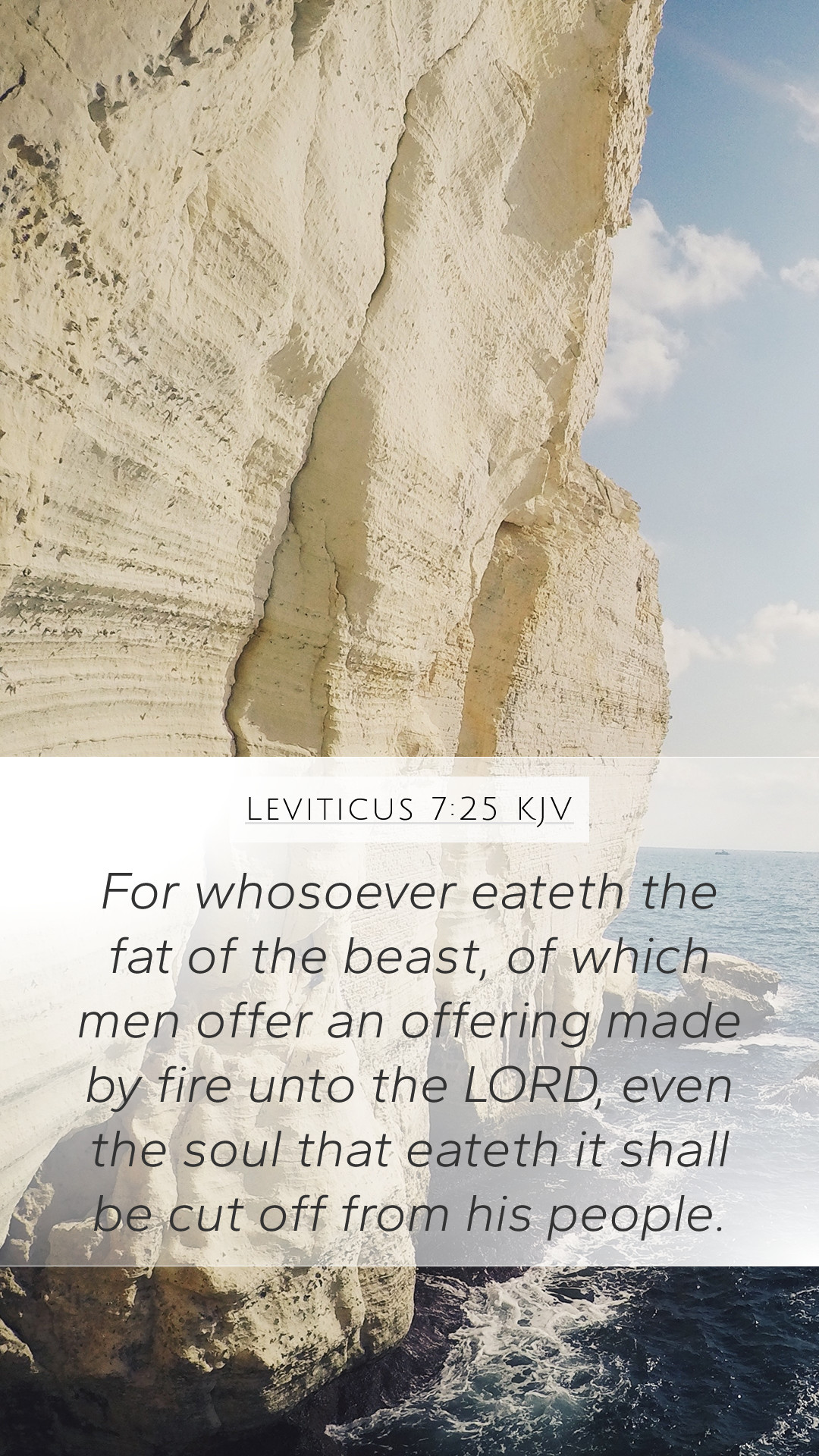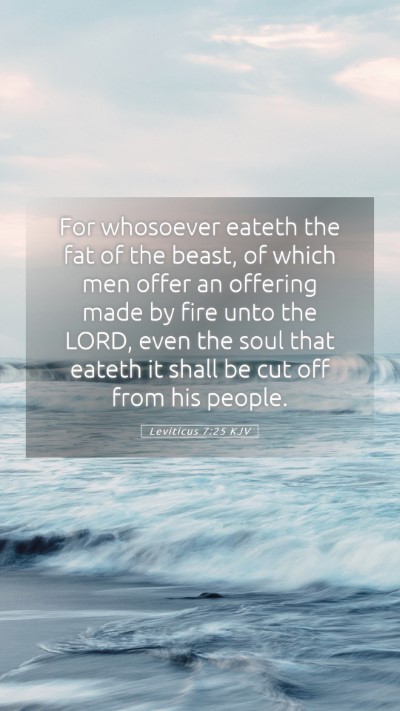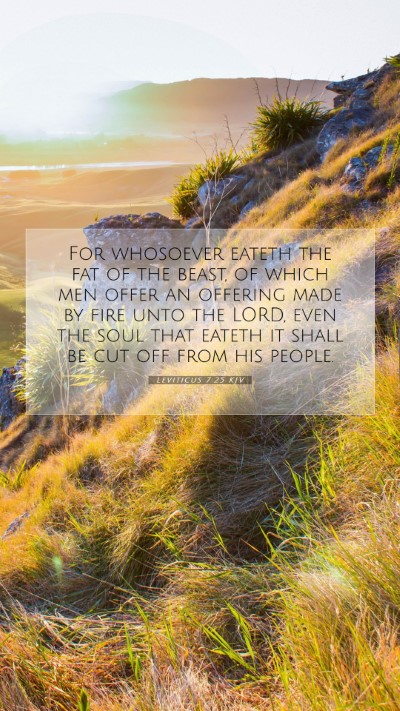Understanding Leviticus 7:25
Leviticus 7:25 states: “And if anyone eats the fat of the beast from which an offering is made by fire to the Lord, the person who eats it shall be cut off from his people.” This verse carries significant weight in the context of ancient Israelite worship and the regulations surrounding offerings. Below, we delve into a combined commentary from notable biblical scholars, highlighting important themes and interpretations.
Overview of Leviticus
Leviticus is primarily concerned with the laws that govern worship and the rituals that God commanded the Israelites to follow. It emphasizes holiness, separation from sin, and the importance of adhering to divine instructions. This specific verse focuses on the instructions regarding fat consumption in the context of sacrificial offerings.
Commentary Insights
-
Matthew Henry's Analysis:
Henry remarks that this prohibition against eating the fat serves a dual purpose—it signifies the sacred nature of offerings made to God and underscores the seriousness of obeying divine commands. The fat was considered the best part of the animal and reserved for God, symbolizing the honoring of God above all.
-
Albert Barnes' Exegesis:
Barnes emphasizes that the act of eating the fat meant infringing upon God's holy regulations. He explains that in many cultures, particularly in the context of ancient Israel, fat from offerings was viewed not only as unclean but also as something that belongs solely to God. Thus, consuming it was equal to robbing God of His due.
-
Adam Clarke's Commentary:
Clarke notes the gravity of the phrase “cut off from his people,” highlighting that such a fate indicates severe consequences for disobedience. In the community of Israelites, being ‘cut off’ meant not just spiritual separation from God, but also from the blessings of the community. This served as a deterrent against willful disobedience and fostered a culture of respect for God’s laws.
Theological Implications
This verse reflects broader theological themes of obedience, the sanctity of offerings, and the seriousness with which God takes His commands. The Israelites were called to be a holy people, thus every command was tied to their covenant relationship with God.
Applications for Today
While the specific dietary laws may not apply directly to modern believers, the principle of honoring God remains relevant. Today, individuals are reminded to dedicate their best to God and avoid practices that might dishonor Him. This could relate not only to offerings but also to how one lives out their faith daily.
Related Bible Cross References
- Leviticus 3:16 – Discusses the fat as belonging to the Lord.
- Exodus 29:13 – Details the offerings and what parts are considered sacred.
- Leviticus 22:8 – Prohibits consumption of flesh that has been touched by a dead body.
Conclusion
In studying Leviticus 7:25, believers gain valuable insights into the nature of offerings and the importance of adhering to God's commandments. The scholarly analyses from figures like Matthew Henry, Albert Barnes, and Adam Clarke illuminate the verse's implications, making it clear that understanding these scriptures is essential for a deeper relationship with God.
Further Exploration
For those engaged in Bible study groups or seeking to enhance their online Bible study experience, diving deeper into verses like Leviticus 7:25 can provide rich insights. Utilizing Bible study tools and Bible study guides can augment one’s understanding of Scripture and enable meaningful discussions about its applications today.


